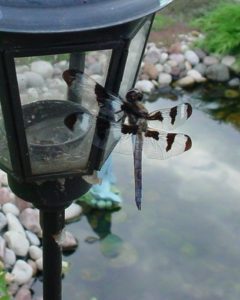Winter is a great time to think about the pond you have or the one that you want to have. This article will help you to ask the kind of questions necessary to help yourself .
Small ponds, either lined or unlined, are challenging to manage if you ignore basic science. I get a lot of calls from people on how to improve water quality. Most problems with water are the symptoms of poor design and management of the pond. Many people just dig a hole and “poof”, it’s a pond! Shortly afterwards the trouble starts.
Building ponds really appeals to the do-it-yourselfer. Unfortunately, most people don’t have the knowledge set and make the wrong decisions in building and managing their ponds.
To get the most out of your pond, here are some questions you should ask yourself and then seek out a qualified person to help you:
- What level of water quality will I be satisfied with?
- If I can’t reach that level of water quality, what will my options be?
- How will I keep runoff water from carrying nutrients into my pond that will create large amounts of algae that ruins it for swimming?
- After the pond is constructed how will I remove excess organic material that builds up on the bottom and makes the pond smelly?
- How will I add enough aeration to slow down the aging process of the pond and improve the water quality?
- If I try to solve my pond problems with pesticides, how many more problems will I have?
- How do I manage the property around the pond properly?

